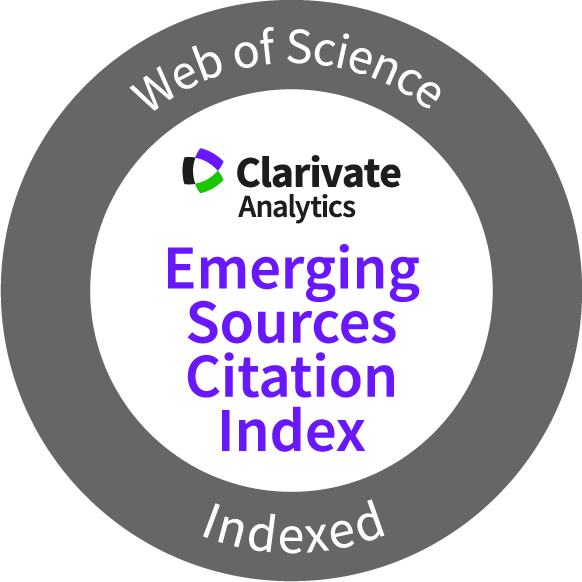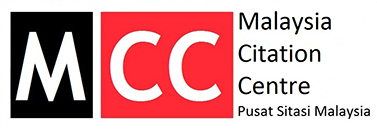Effect of Temperature and Fermentation Time on Protease Production Using Decapterus macarellus Fish Waste
Keywords:
Bacillus cereus, Decapterus macarellus, fish waste hydrolysate, protease, submerged fermentationAbstract
The fish processing industries generate huge amounts of by-products which cause serious environmental and health problems. The environmental problems related to waste disposal can be reduced as the low cost of fish by-products contains nutrients that can enhance microbial growth and are useful for enzyme production. This research aims to investigate the effect of temperature and fermentation time on protease production from fish waste hydrolysate by using the Bacillus strain (Bacillus cereus). The pre-treatment and fish waste hydrolysate were carried out and continued with the production of protease. The effect of fermentation time was studied every 4 h for 72 h while the effect of temperature was investigated at temperatures ranging from 30 °C to 60 °C. The results showed the maximum protease production of 45.63 U/mL at 48 h of fermentation time and 44.908 ± 6.14 U/mL at a temperature of 50 °C. The current study provides insight into the effects of cultivation conditions on protease production from local fish waste industries for further optimization study to enhance protease production.
Downloads
Metrics
References
Al-Abdalall, A.H. & Al-Khaldi, E.M. 2016. Production of alkaline proteases by alkalophilic Bacillus subtilis during recycling animal and plant wastes. African Journal of Biotechnology, 15(47): 2698-2702. DOI: https://doi.org/10.5897/AJB2016.15430
Asha, B. & Palaniswamy, M. 2018. Optimization of alkaline protease production by Bacillus cereus FT 1 isolated from soil. Journal of Applied Pharmaceutical Science, 8(2): 119-127.
Asker, M.M.S., Mahmoud, M.G., El Shebwy, K. & Abd el Aziz, M.S. 2013. Purification and characterization of two thermostable protease fractions from Bacillus megaterium. Journal of Genetic Engineering and Biotechnology, 11(2): 103-109. DOI: https://doi.org/10.1016/j.jgeb.2013.08.001
Barros, F.F.C., Simiqueli, A.P.R., de Andrade, C.J. & Pastore, G. M. 2013. Production of enzymes from agroindustrial wastes by biosurfactant-producing strains of Bacillus subtilis. Biotechnology Research International, 2013: 103960. DOI: https://doi.org/10.1155/2013/103960
Chu, W.H. 2007. Optimization of extracellular alkaline protease production from species of Bacillus. Journal of Industrial Microbiology and Biotechnology, 34(3): 241-245. DOI: https://doi.org/10.1007/s10295-006-0192-2
Contesini, F., Melo, R. & Sato, H. 2018. An overview of Bacillus proteases: from production to application. Critical Reviews in Biotechnology, 38(3): 321-334. DOI: https://doi.org/10.1080/07388551.2017.1354354
Cui, H., Yang, M., Wang, L. & Xian, C.J. 2015. Identification of a new marine bacterial strain SD8 and optimization of its culture conditions for producing alkaline protease. PLoS ONE, 10(12): e0146067. DOI: https://doi.org/10.1371/journal.pone.0146067
Esakkiraj, P., Maruthiah, T., Mohideen Askar Nawas, P., Immanuel, G. & Palavesam, A. 2013. Solid state protease production by Bacillus thuringiensis AP - CMST using trash fish meal as substrate. Journal of Pure and Applied Microbiology, 7(4): 1-7.
Gupta, A. & Khare, S.K. 2007. Enhanced production and characterization of a solvent stable protease from solvent tolerant Pseudomonas aeruginosa PseA. Enzyme and Microbial Technology, 42(1): 11-16. DOI: https://doi.org/10.1016/j.enzmictec.2007.07.019
Gupta, R.K., Prasad, D., Sathesh, J., Naidu, R.B., Kamini, N.R., Palanivel, S. & Gowthaman, M.K. 2012. Scale-up of an alkaline protease from Bacillus pumilus MTCC 7514 utilizing fish meal as a sole source of nutrients. Journal of Microbiology and Biotechnology, 22(9): 1230-1236. DOI: https://doi.org/10.4014/jmb.1203.03021
Haddar, A., Fakhfakh-Zouari, N., Hmidet, N., Frikha, F., Nasri, M. & Kamoun, A.S. 2010. Low-cost fermentation medium for alkaline protease production by Bacillus mojavensis A21 using hulled grain of wheat and sardinella peptone. Journal of Bioscience and Bioengineering, 110(3): 288-294. DOI: https://doi.org/10.1016/j.jbiosc.2010.03.015
Hamza, T.A. 2017. Bacterial protease enzyme: safe and good alternative for industrial and commercial use. International Journal of Chemical and Biomolecular Science, 3(1): 1-10.
Huang, G., Dai, D., Hu, W. & Jiang, J. 2010. Optimization of medium composition for thermostable protease production by Bacillus sp. HS08 with a statistical method. African Journal of Biotechnology, 7(8): 1115-1122.
Martínez-Medina, G.A., Barragán, A.P., Ruiz, H.A., Ilyina, A., Hernández, J.L.M., Rodríguez-Jasso, R.M., Hoyos-Concha, J.L. & Aguilar-González, C.N. 2019. Fungal proteases and production of bioactive peptides for the food industry. In: Enzymes in Food Biotechnology: Production, Applications, and Future Prospects. M. Kuddus (Ed.). Academic Press. pp. 221-246. DOI: https://doi.org/10.1016/B978-0-12-813280-7.00014-1
Mehta, V.J., Thumar, J.T. & Singh, S.P. 2006. Production of alkaline protease from an alkaliphilic actinomycete. Bioresource Technology, 97(14): 1650-1654. DOI: https://doi.org/10.1016/j.biortech.2005.07.023
Mukhtar, H. & Ul-Haq, I. 2012. purification and characterization of alkaline protease production by a mutant strain of Bacillus subtilis. Pakistan Journal of Botany, 44(5): 1697-1704.
Mushtaq, Z., Adnan, A., Mehmood, Z. & Syed, Q. 2014. Process optimization by response surface methodology for extracellular alkaline protease production from Bacillus subtilis. Pakistan Journal of Botany, 46(2): 699-704.
Ovissipour, M., Safari, R., Motamedzadegan, A. & Shabanpour, B. 2012. Chemical and biochemical hydrolysis of persian sturgeon (Acipenser persicus) visceral protein. Food and Bioprocess Technology, 5(2): 460-465. DOI: https://doi.org/10.1007/s11947-009-0284-x
Ramakrishnan, V., Ghaly, A., Brooks, M. & Budge, S. 2013. Enzymatic extraction of aminoacids from fish waste for possible use as a substrate for production of jadomycin. Enzyme Engineering, 2(2): 1-9.
Ramkumar, A., Sivakumar, N. & Victor, R. 2016. Fish waste-potential low cost substrate for bacterial protease production: a brief review. The Open Biotechnology Journal, 10(Suppl-2, M6): 335-341. DOI: https://doi.org/10.2174/1874070701610010335
Ramkumar, A., Sivakumar, N., Gujarathi, A.M. & Victor, R. 2018. Production of thermotolerant, detergent stable alkaline protease using the gut waste of Sardinella longiceps as a substrate: optimization and characterization. Scientific Reports, 8(1): 12442 (2018). DOI: https://doi.org/10.1038/s41598-018-30155-9
Rashmi, P. & Dubey, S.K. 2017. Characterization of protease production efficiency of bacteria present in the poultry farm soil. International Journal of Science and Research (IJSR), 6(1): 1025-1028. DOI: https://doi.org/10.21275/ART20164246
Salwanee, S., Wan Aida, M., Mamot, S., Maskat, M.Y. & Ibrahim, S. 2013. Effects of enzyme concentration, temperature, pH and time on the degree of hydrolysis of protein extract from viscera of tuna (Euthynnus affinis) by using alcalase. Sains Malaysiana, 42(3): 279-287.
Shafee, N., Aris, S.N., Zaliha, N., Rahman, A., Basri, M. & Salleh, A.B. 2005. Optimization of environmental and nutritional conditions for the production of alkaline protease by a newly isolated bacterium Bacillus cereus strain 146. Journal of Applied Sciences Research, 1(1): 1-8.
Soares da Silva, O., Lira de Oliveira, R., de Carvalho Silva, J., Converti, A. & Souza Porto, T. 2018. Thermodynamic investigation of an alkaline protease from Aspergillus tamarii URM4634: A comparative approach between crude extract and purified enzyme. International Journal of Biological Macromolecules, 109: 1039-1044. DOI: https://doi.org/10.1016/j.ijbiomac.2017.11.081
Triki-Ellouz, Y., Ghorbel, B., Souissi, N., Kammoun, S. & Nasri, M. 2003. Biosynthesis of protease by Pseudomonas aeruginosa MN7 grown on fish substrate. World Journal of Microbiology and Biotechnology, 19(1): 41-45. DOI: https://doi.org/10.1023/A:1022549517421
Ul-Haq, I., Mukhtar, H. & Umber, H. 2006. Production of protease by Penicillium chrysogenum through optimization of environmental conditions. Journal of Agriculture & Social Sciences, 2(2): 23-25.
Vázquez, J.A., Docasal, S.F., Prieto, M.A., González, M.A.P. & Murado, M.A. 2008. Growth and metabolic features of lactic acid bacteria in media with hydrolysed fish viscera. An approach to bio-silage of fishing by-products. Bioresource Technology, 99(14): 6246-6257. DOI: https://doi.org/10.1016/j.biortech.2007.12.006
Wang, S.L. & Yeh, P.Y. 2006. Production of a surfactant- and solvent-stable alkaliphilic protease by bioconversion of shrimp shell wastes fermented by Bacillus subtilis TKU007. Process Biochemistry, 41(7): 1545-1552. DOI: https://doi.org/10.1016/j.procbio.2006.02.018
Zainuddin, F.H., Chua, G. K., Chew, F N., Samah, R A., Mortan, S.H. & Yazid, N.A. 2020. Effect of type of nitrogen sources and concentration on protease production: Fish waste hydrolysate as a potential low cost source. IOP Conference Series: Materials Science and Engineering, 991(1): 012063. DOI: https://doi.org/10.1088/1757-899X/991/1/012063
Published
How to Cite
Issue
Section
Any reproduction of figures, tables and illustrations must obtain written permission from the Chief Editor (wicki@ukm.edu.my). No part of the journal may be reproduced without the editor’s permission





















